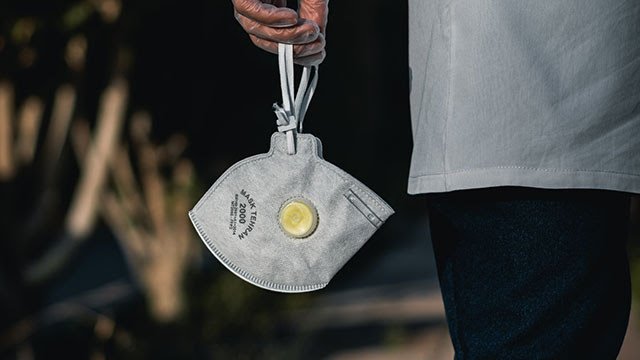Research
UV-resistant elastic for N95 masks receives NSF RAPID grant
May 19, 2020

Material can withstand damage from disinfection, enabling masks to be safely reused
 Northwestern University’s Mark Hersam has received funding to develop a new elastic material that could enable N95 medical face masks to be disinfected and reused dozens of times.
Northwestern University’s Mark Hersam has received funding to develop a new elastic material that could enable N95 medical face masks to be disinfected and reused dozens of times.
Last week, the project received a $200,000 rapid response research (RAPID) grant from the National Science Foundation, which has called for immediate proposals that have potential to address the spread of the novel coronavirus (COVID-19).
“The ongoing COVID-19 pandemic has led to a shortage of critical medical equipment, including N95 medical masks. To conserve resources, medical workers have been reusing masks,” said Hersam, a Walter P. Murphy Professor of Materials Science and Engineering in Northwestern’s McCormick School of Engineering. “The problem is that sterilization using ultraviolet light breaks down the elastic in the nose foam and head straps, preventing the masks from fitting properly.”
To disinfect equipment, including N95 masks, medical professionals use ultraviolet germicidal irradiation (UVGI). While the widely used technique is highly effective in killing or inactivating pathogens, such as viruses and bacteria, UVGI also rapidly ages plastics and rubber.
Hersam’s team is developing a new type of elastic composite based on hydrated graphene oxide (hGO), a material that shows resistance to ultraviolet radiation and has proven intrinsic antimicrobial properties. By incorporating this material into N95 masks, the elastic components could better withstand UVGI and continue to maintain a snug fit even after being reused dozens of time.
A world-renowned graphene expert, Hersam will lead proof-of-concept experiments in his laboratory throughout the summer. He believes that better materials for medical equipment will be important well into the future.
“The outcomes of this research not only address the current COVID-19 crisis,” he said, “but are applicable for general medical use, including in future pandemics.”
The project, “Hydrated graphene oxide elastomeric composites for sterilizable and reusable N95 masks,” is funded by NSF award number 2029058.